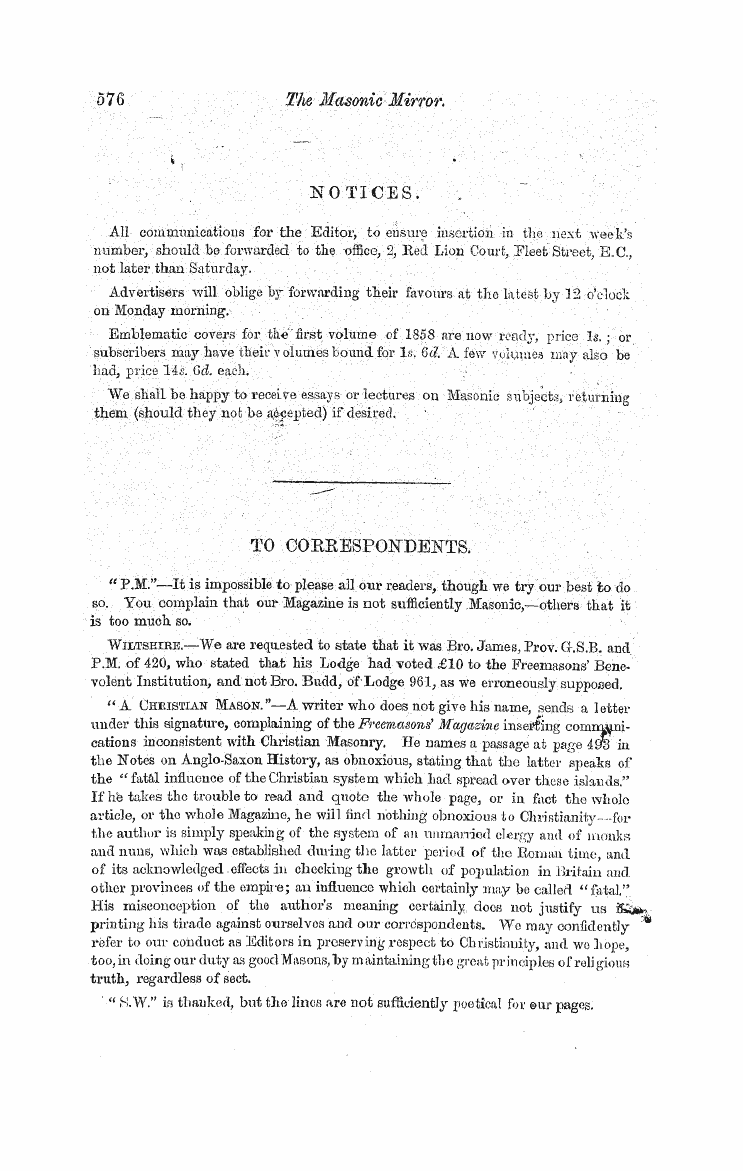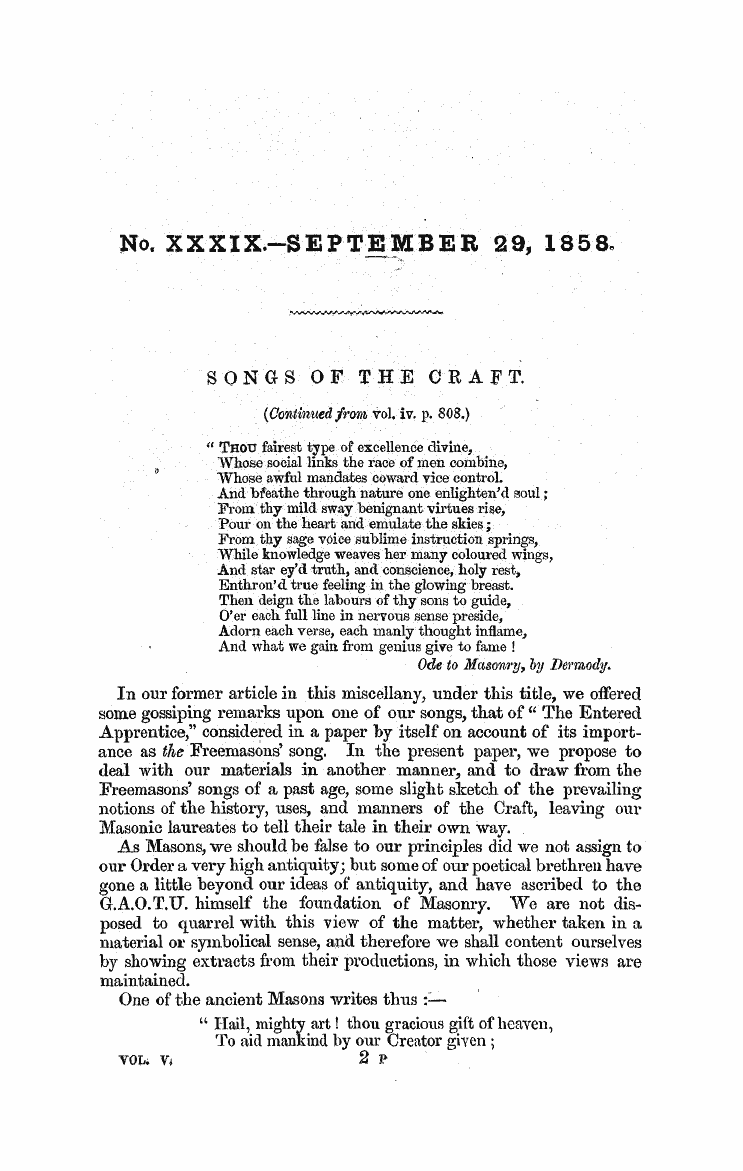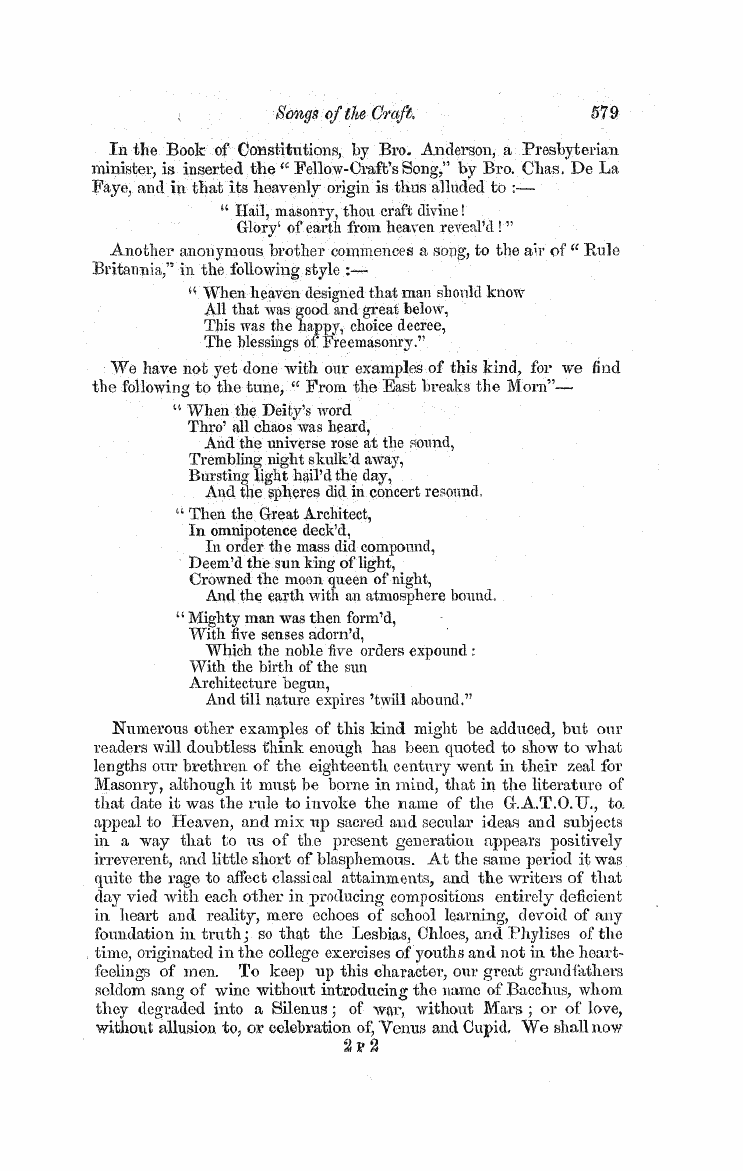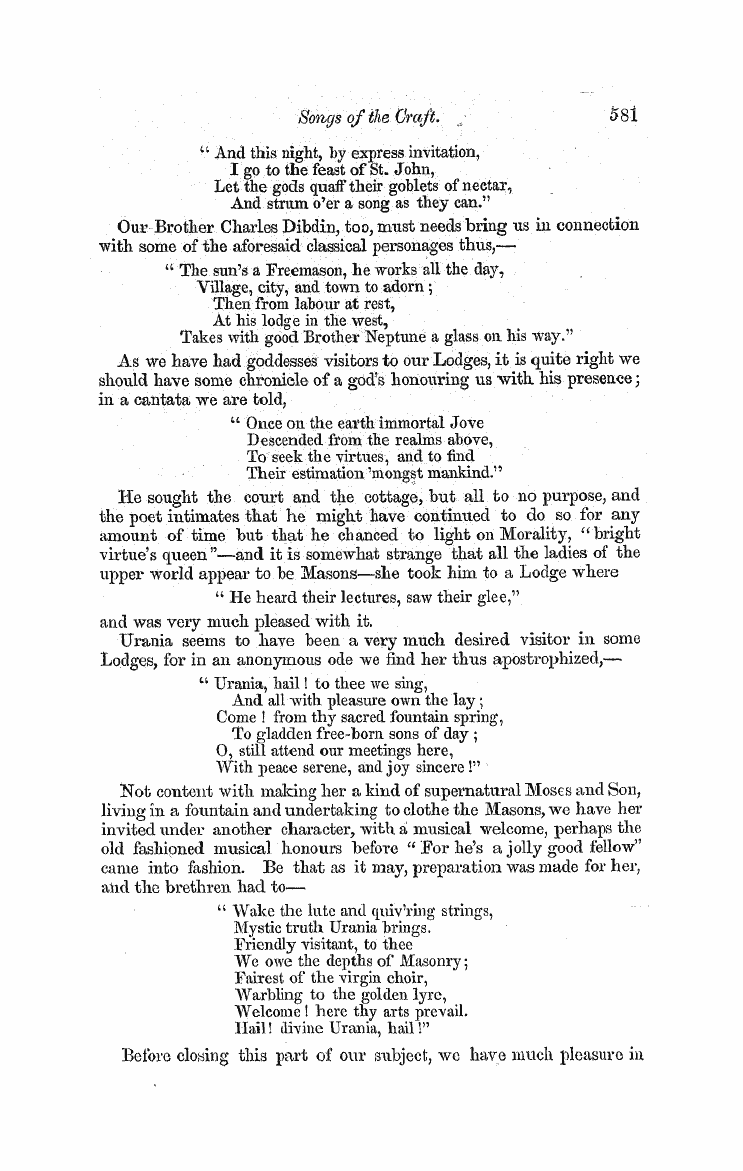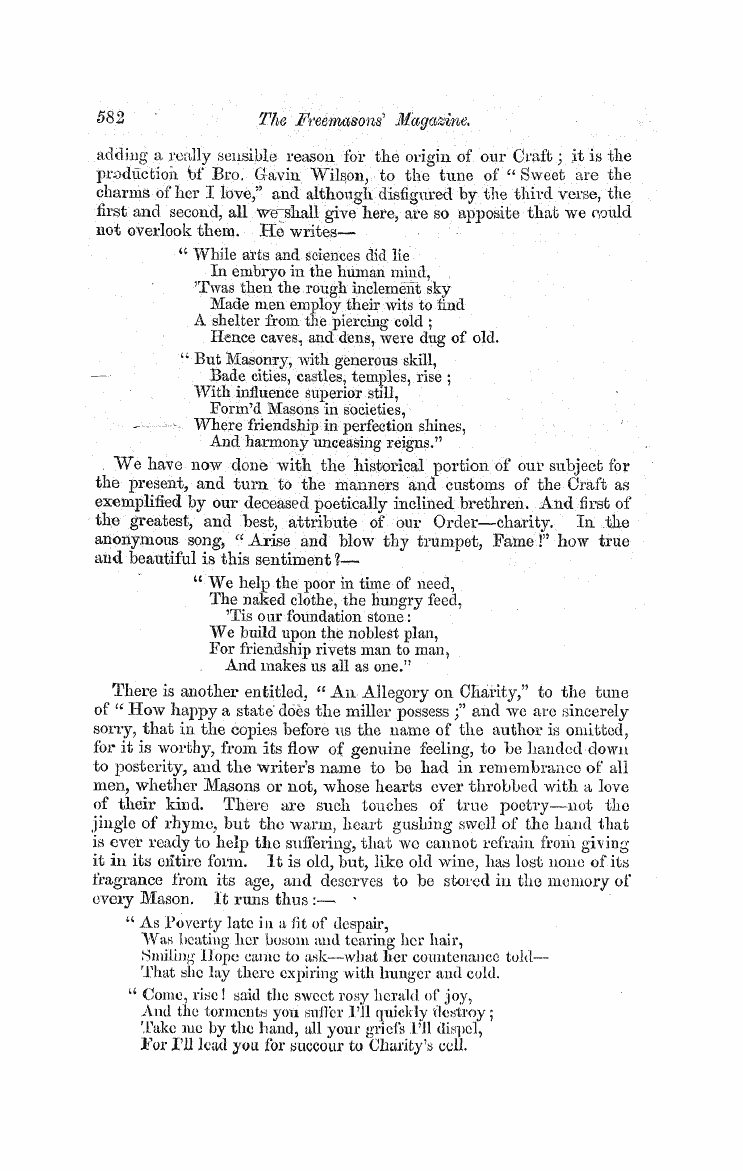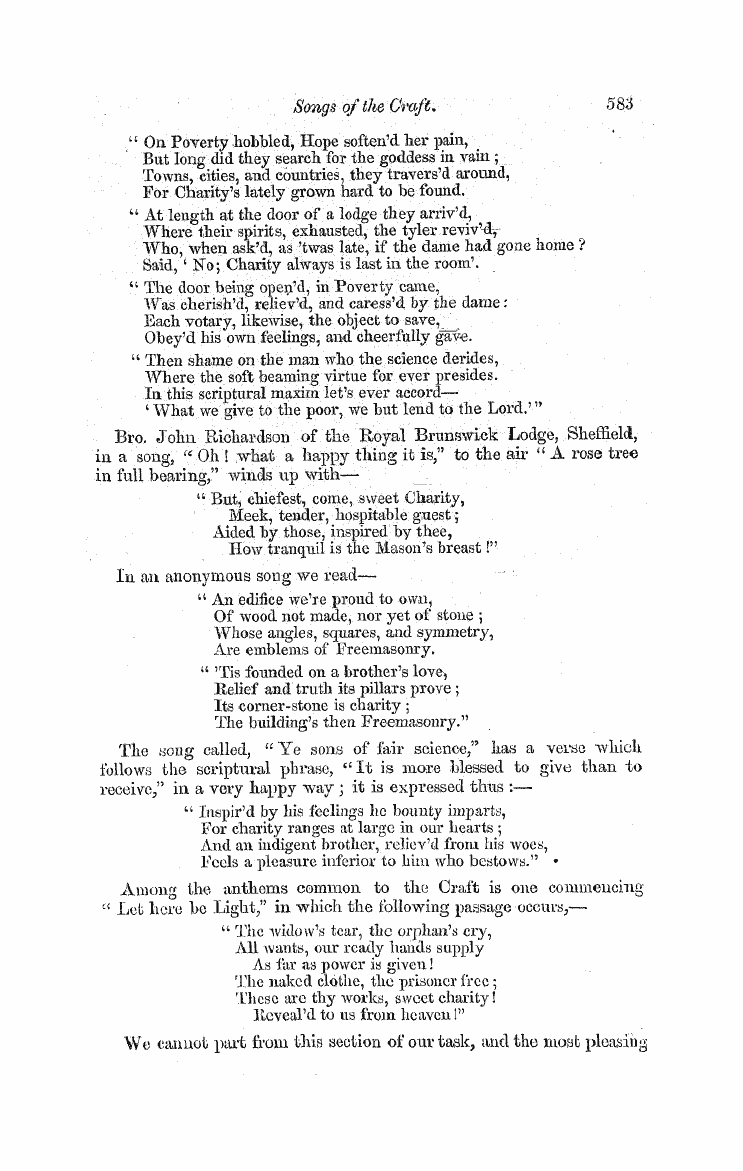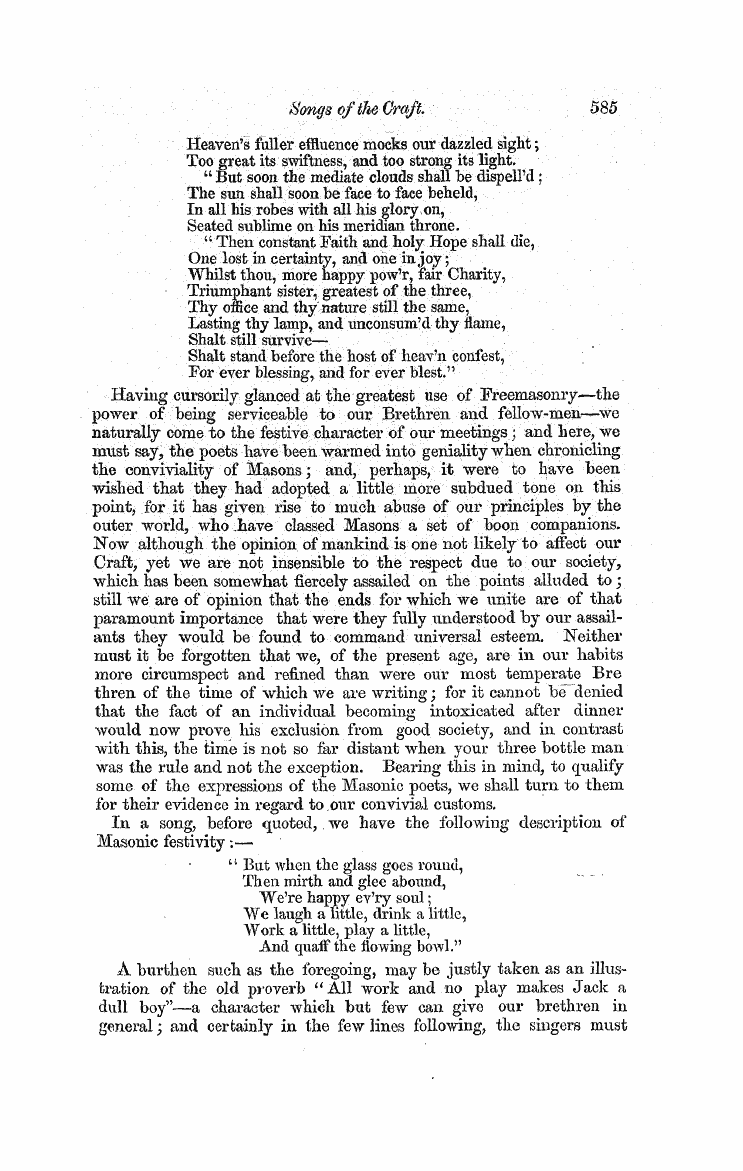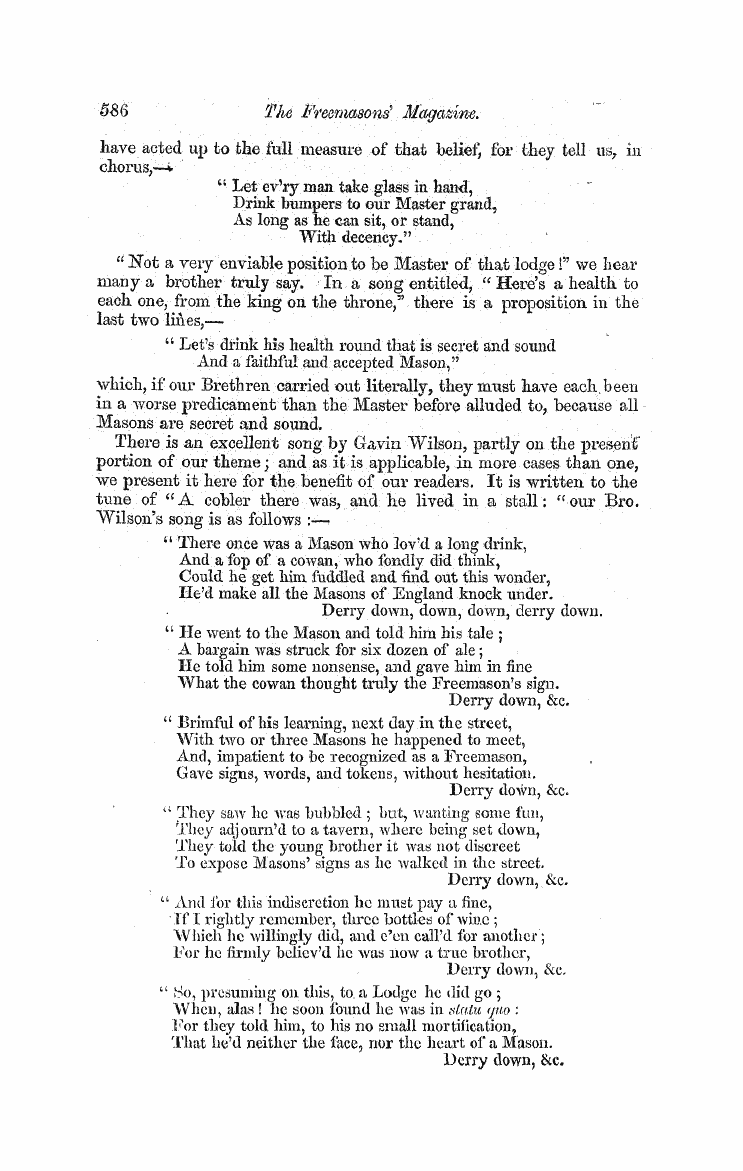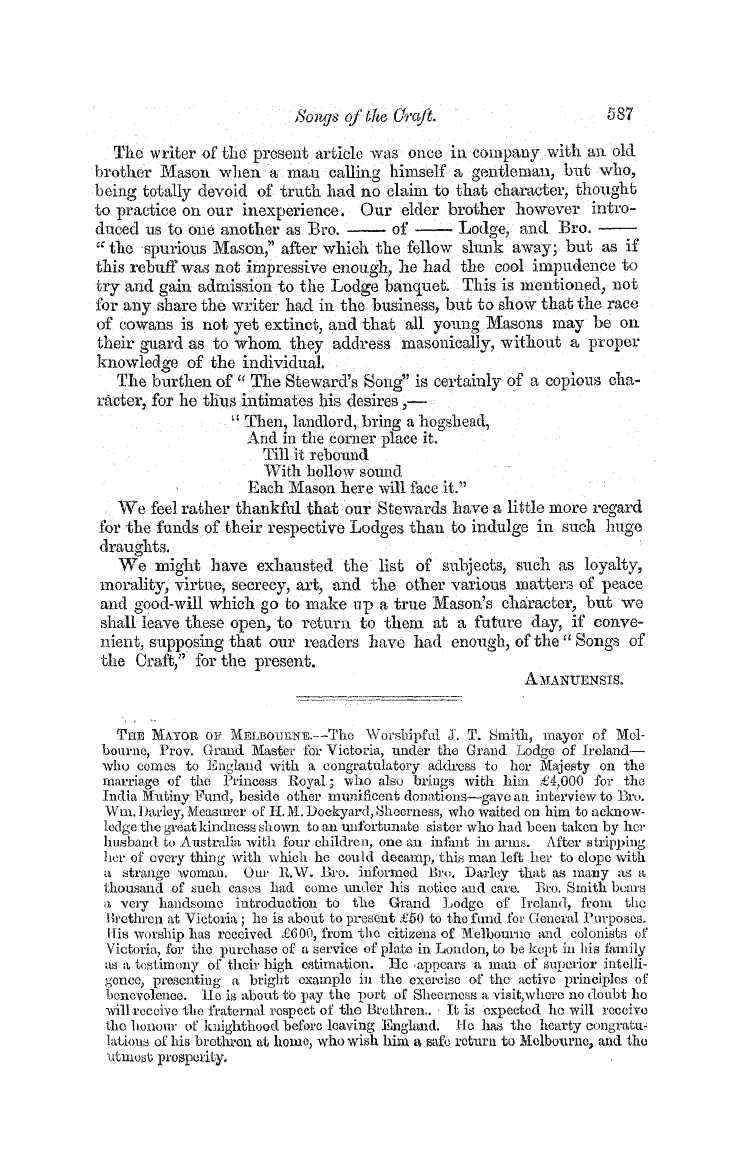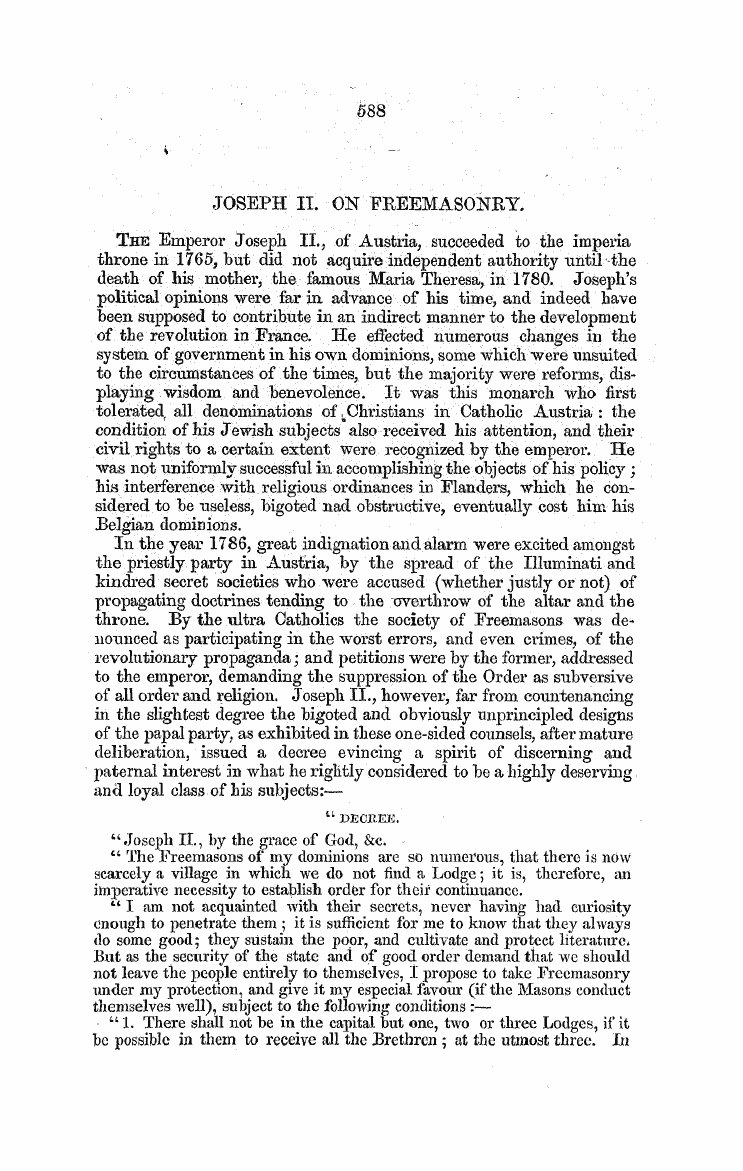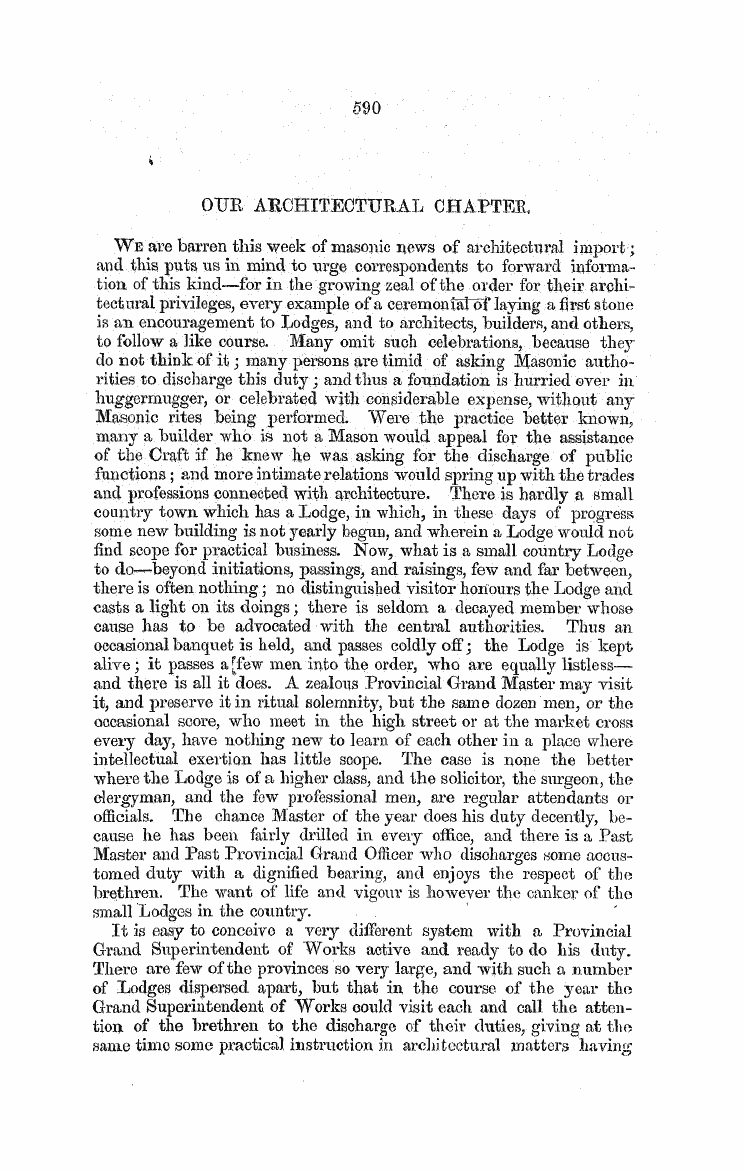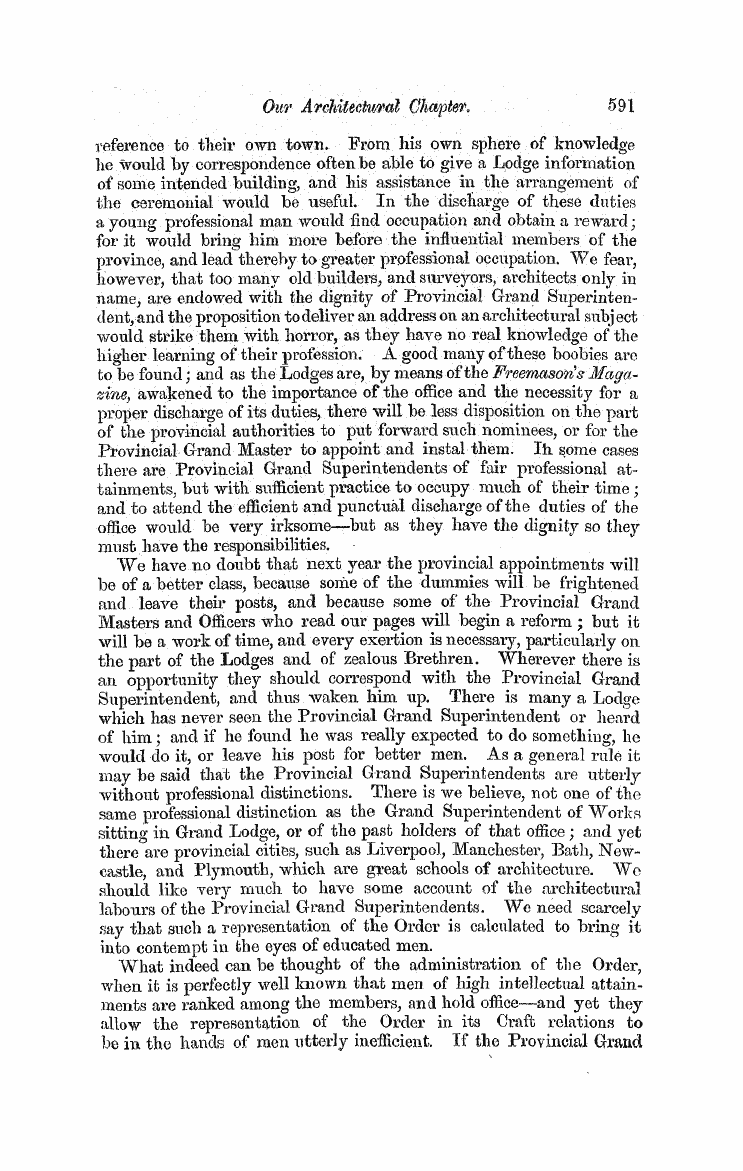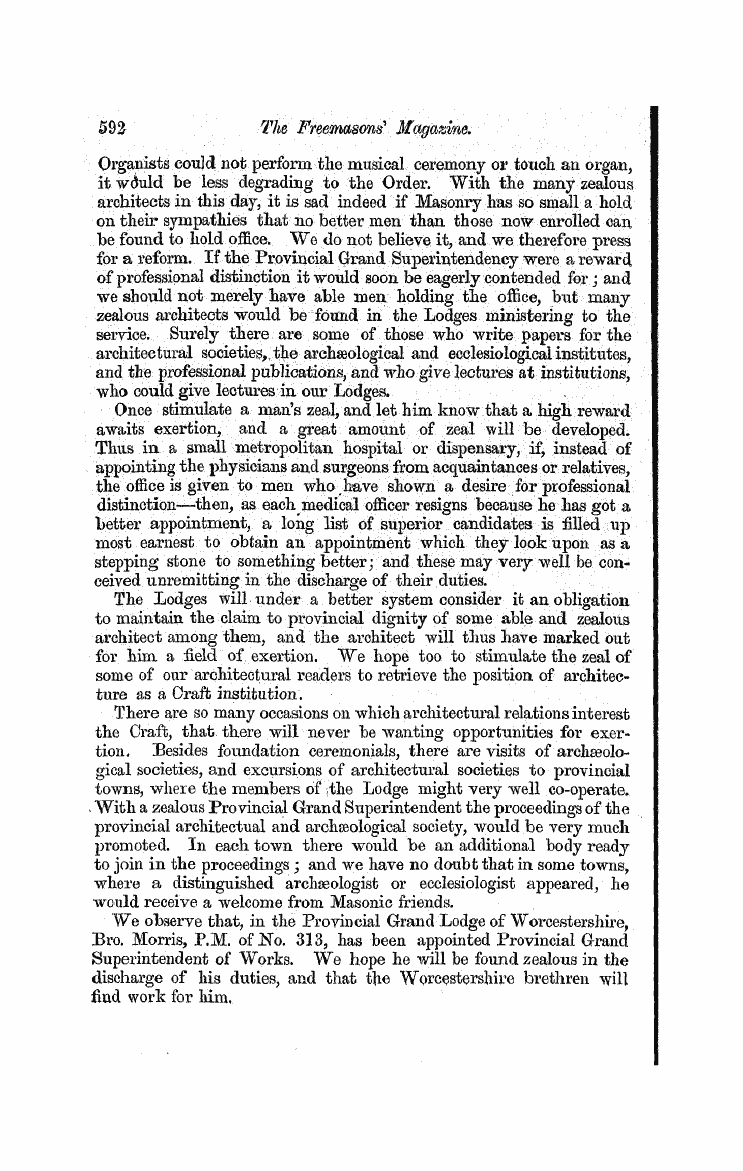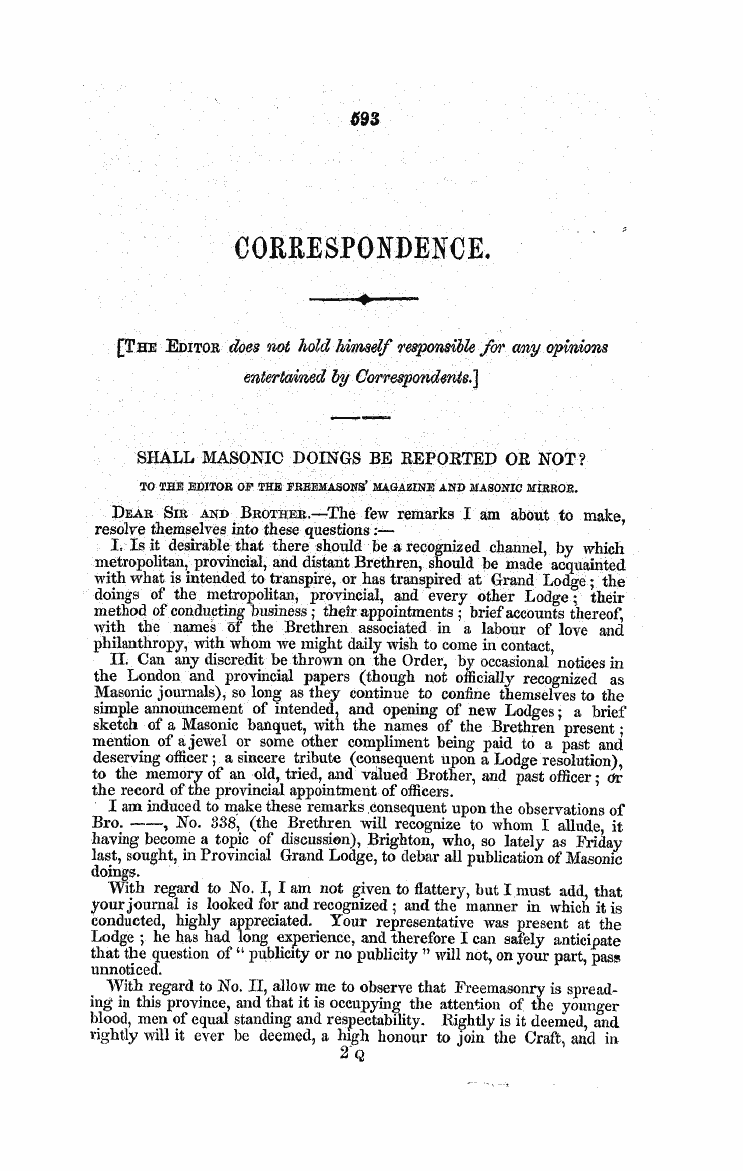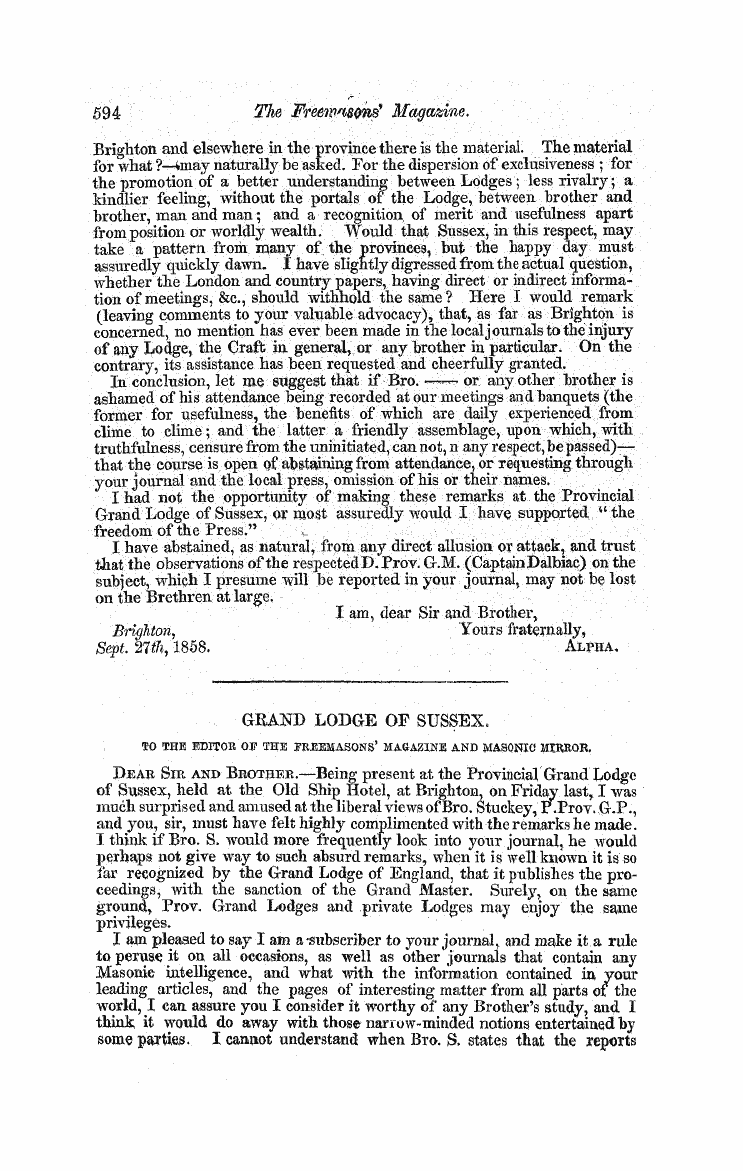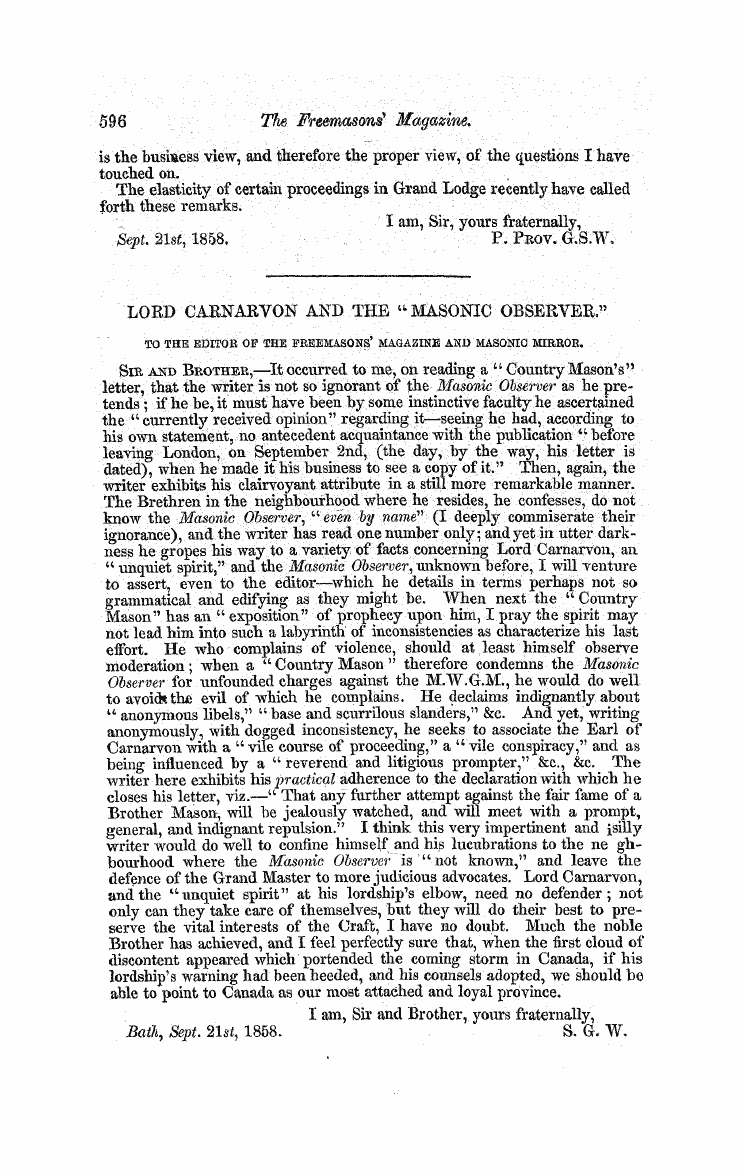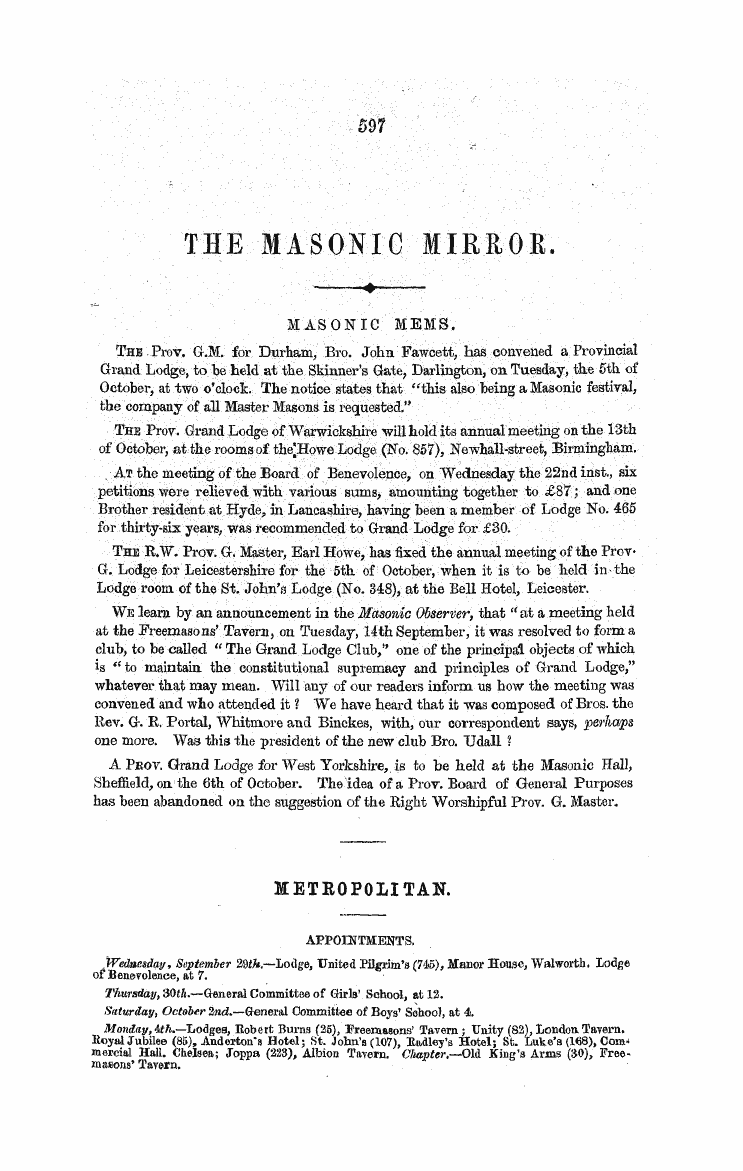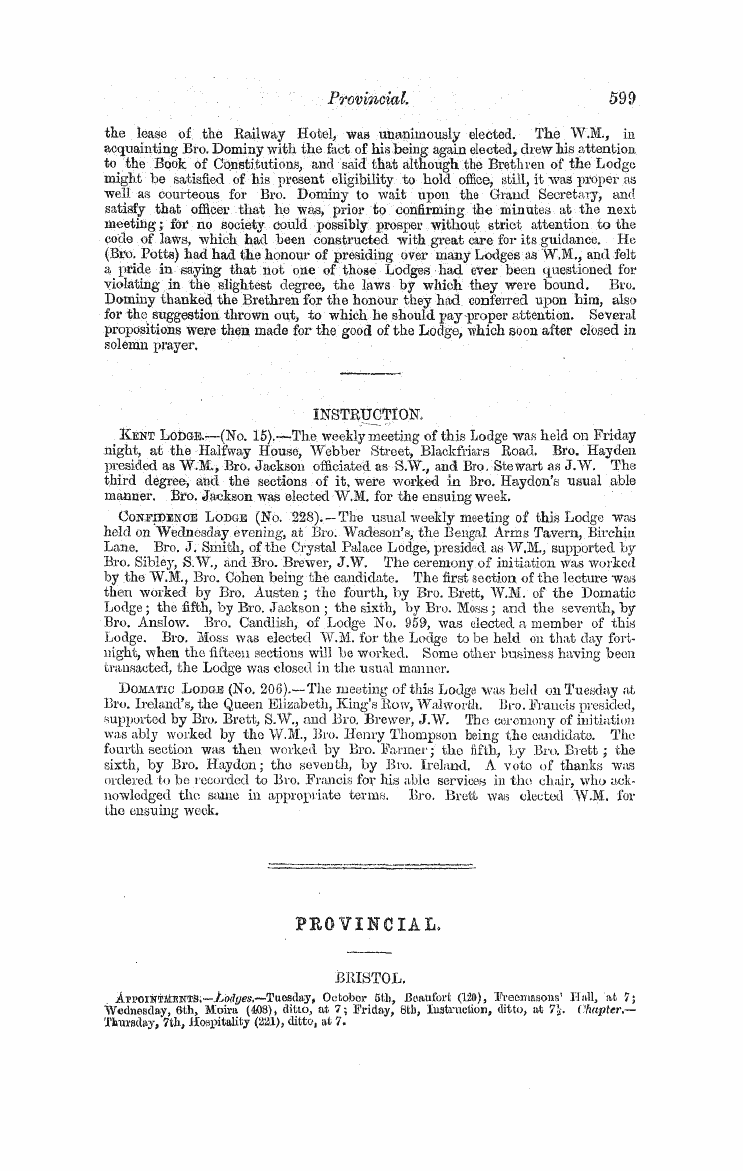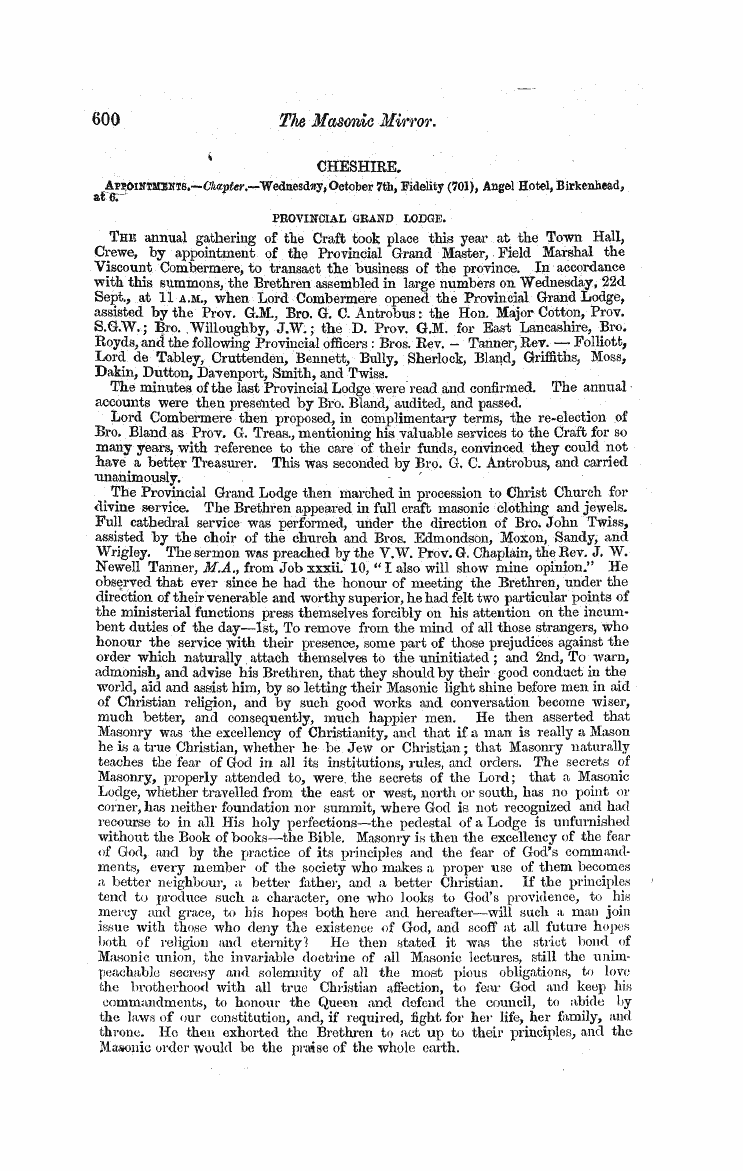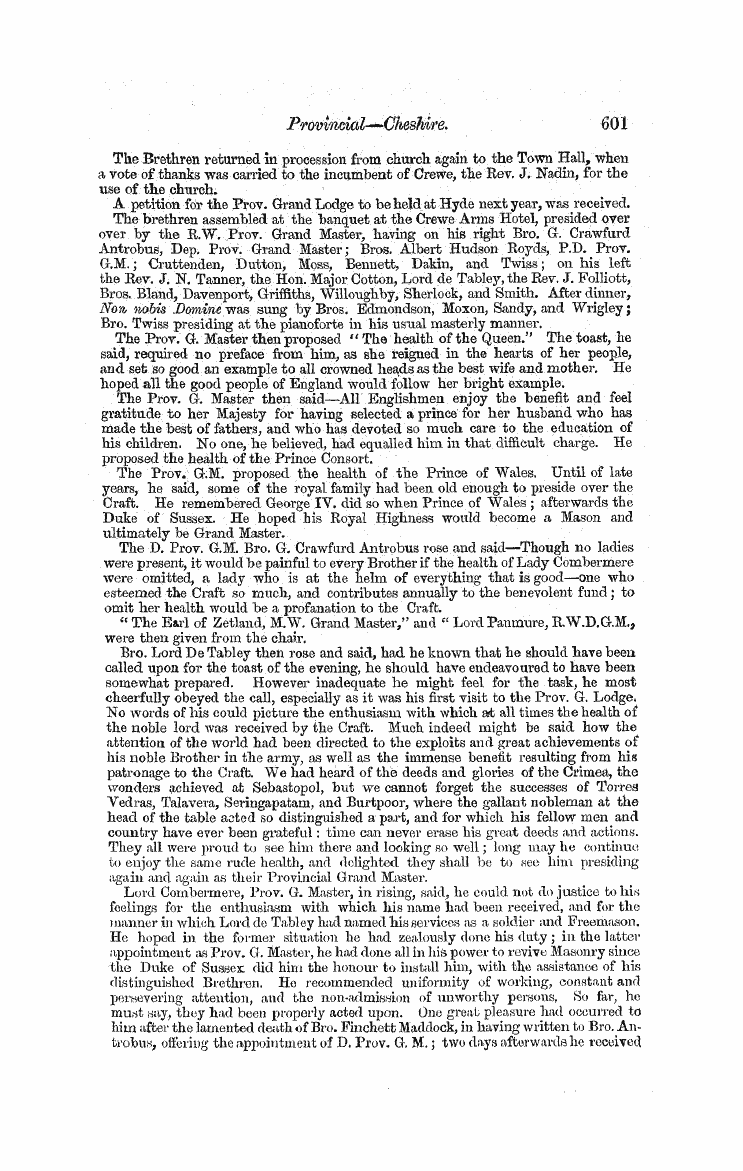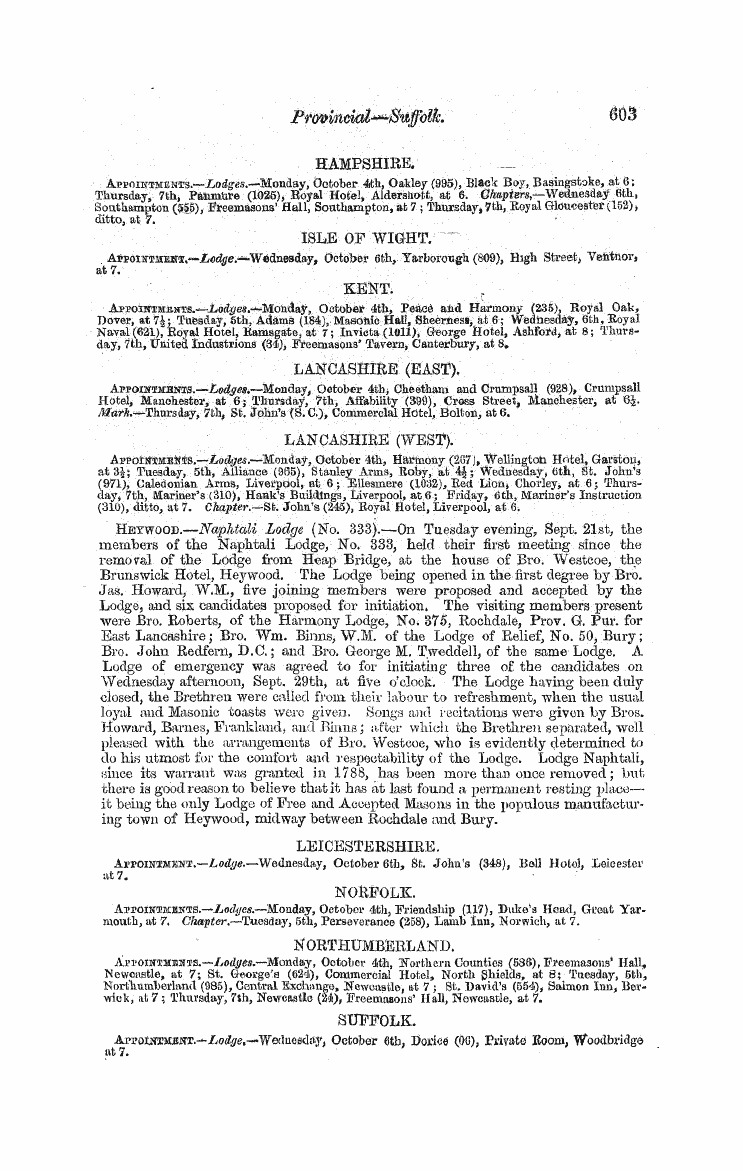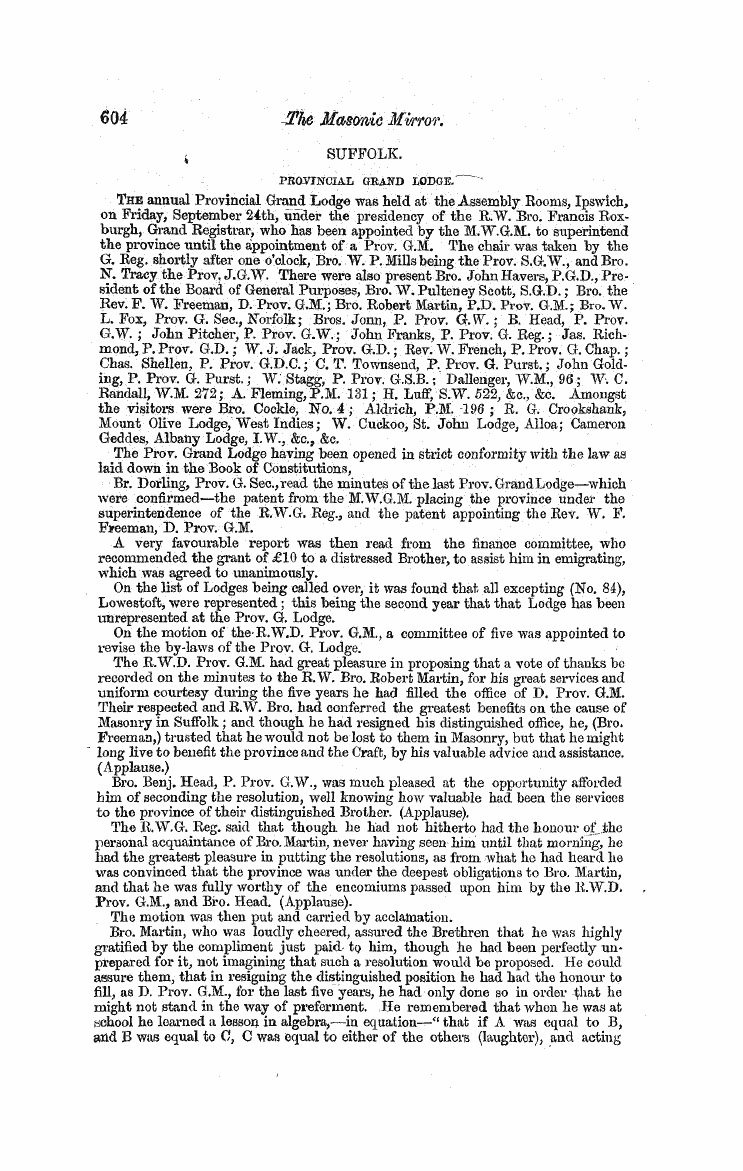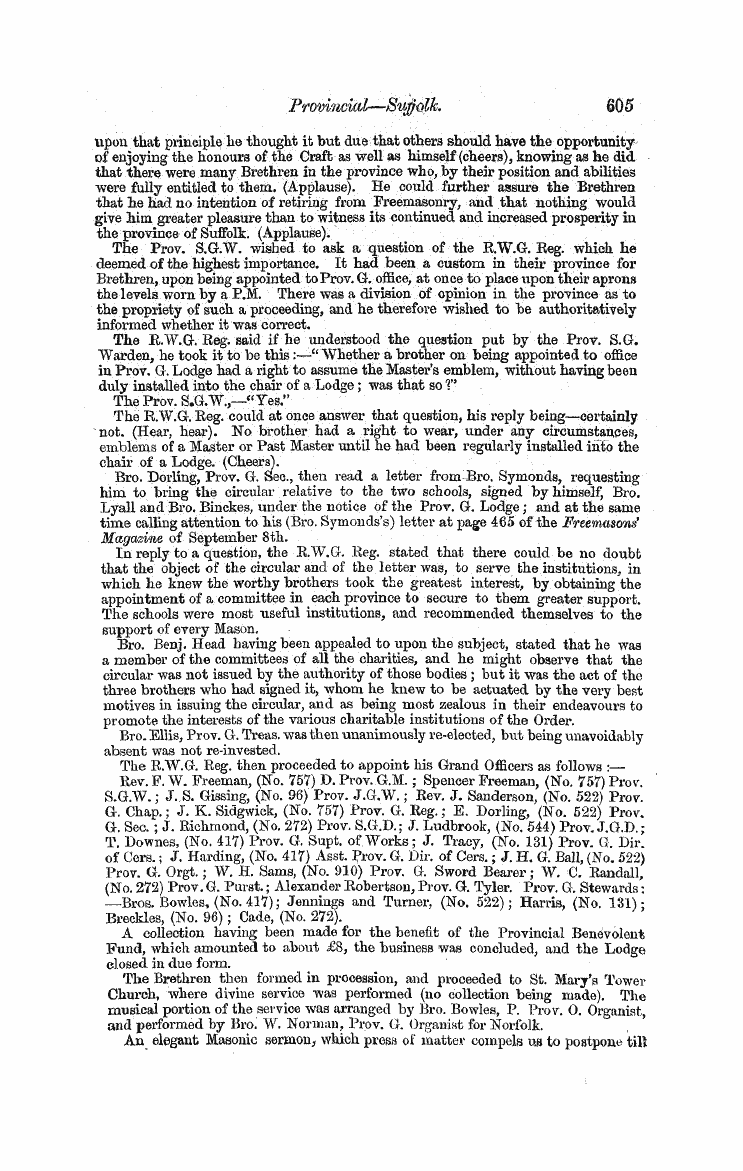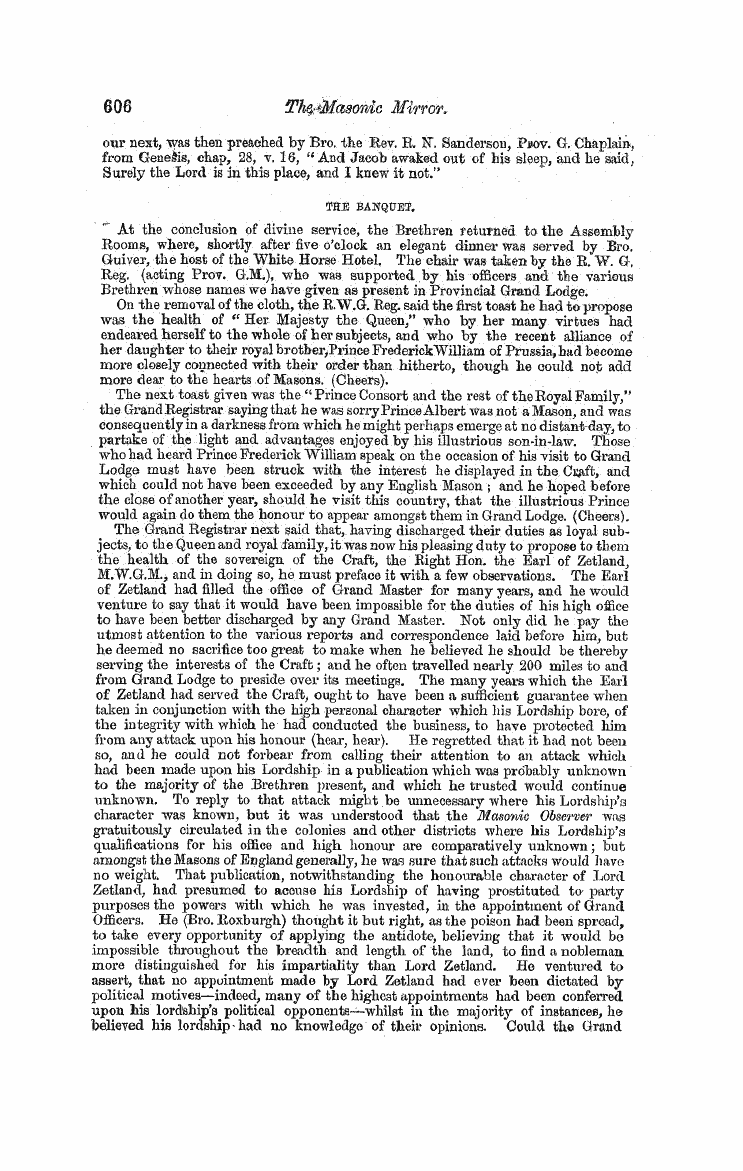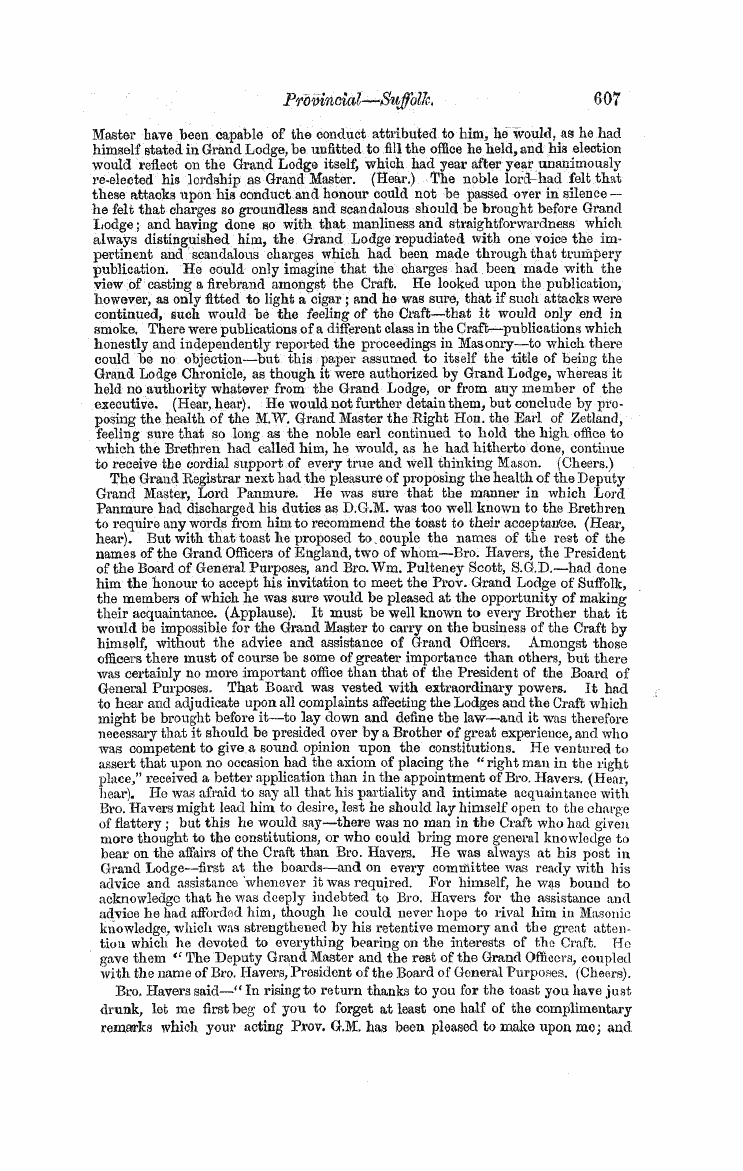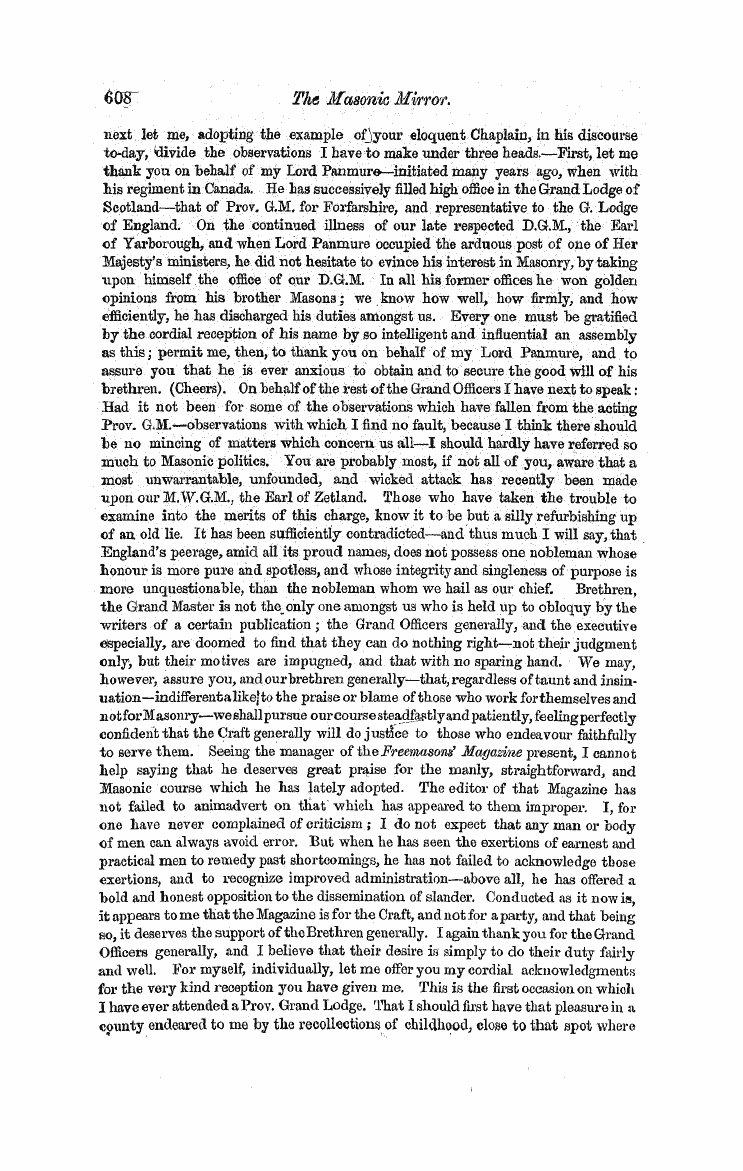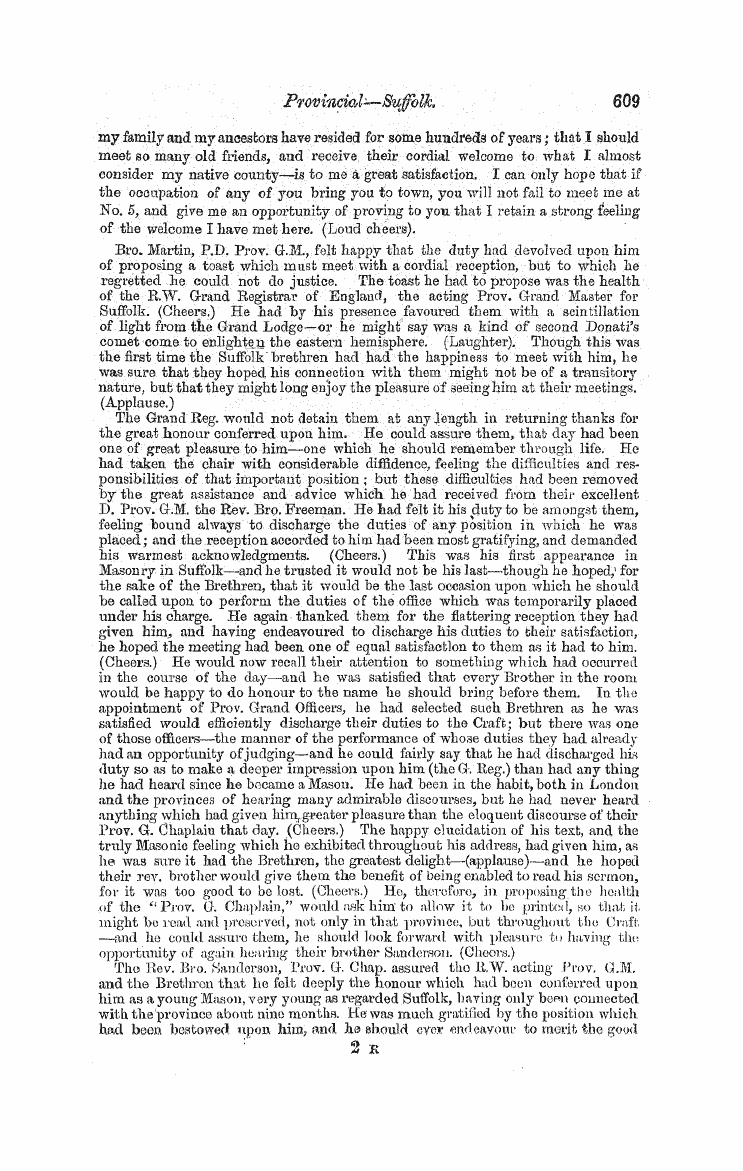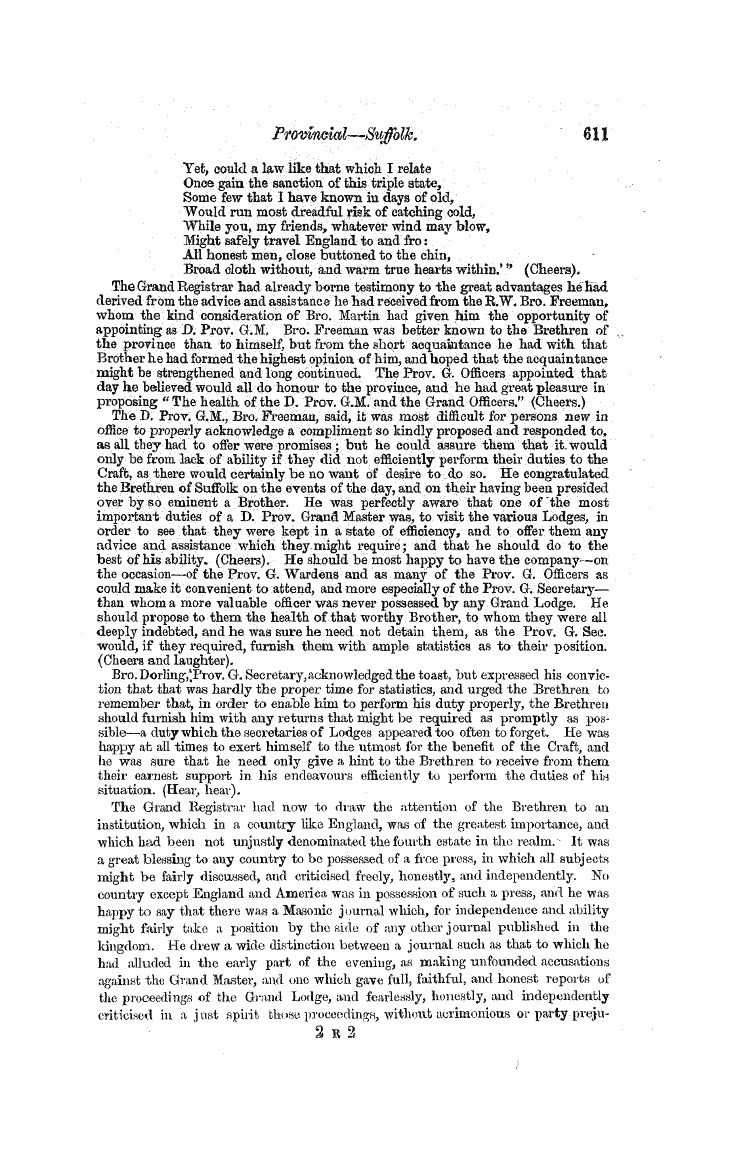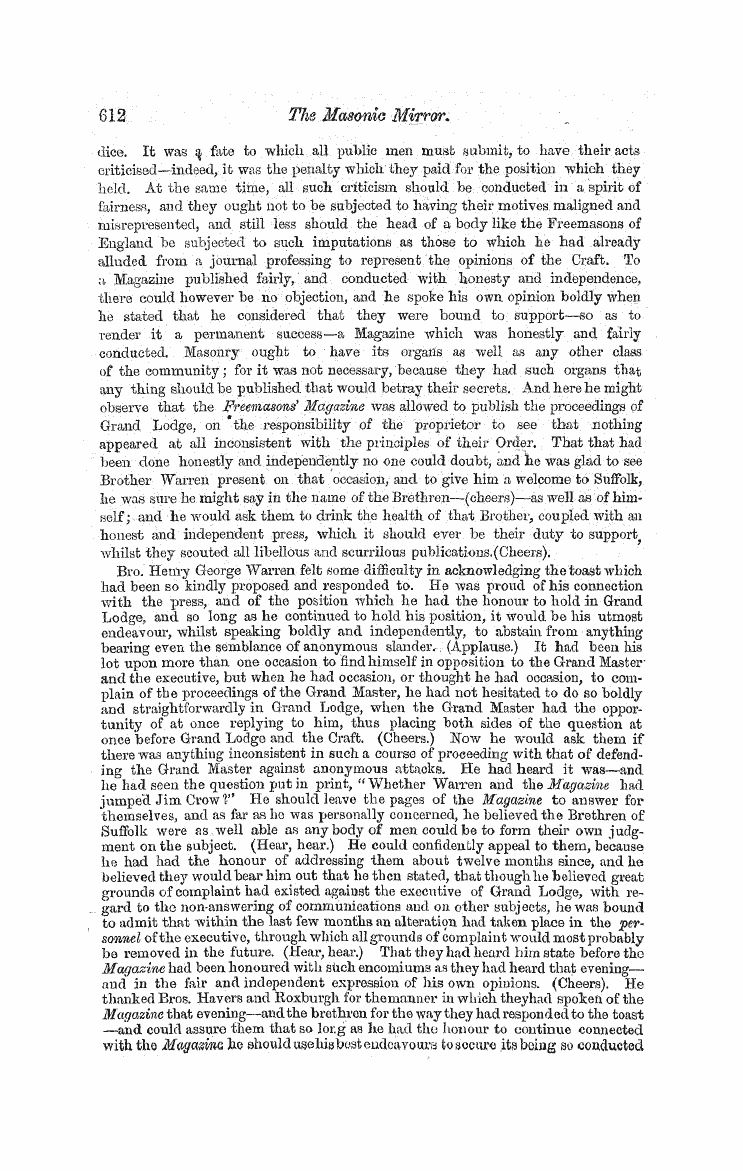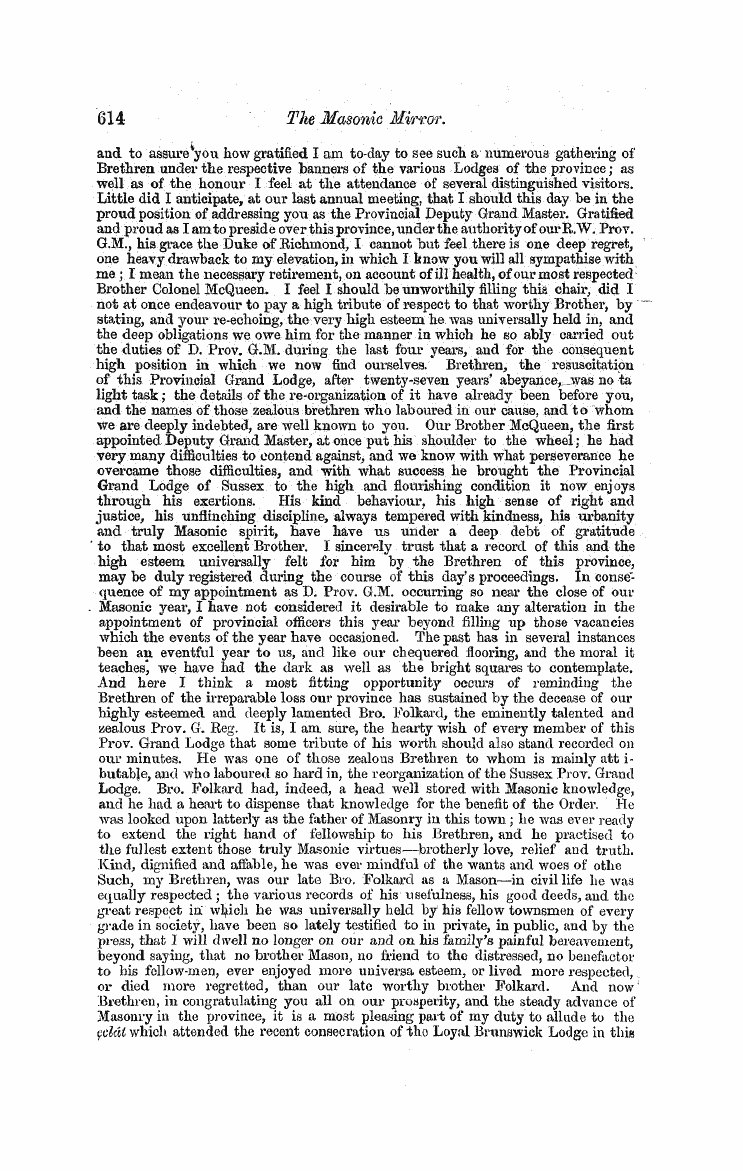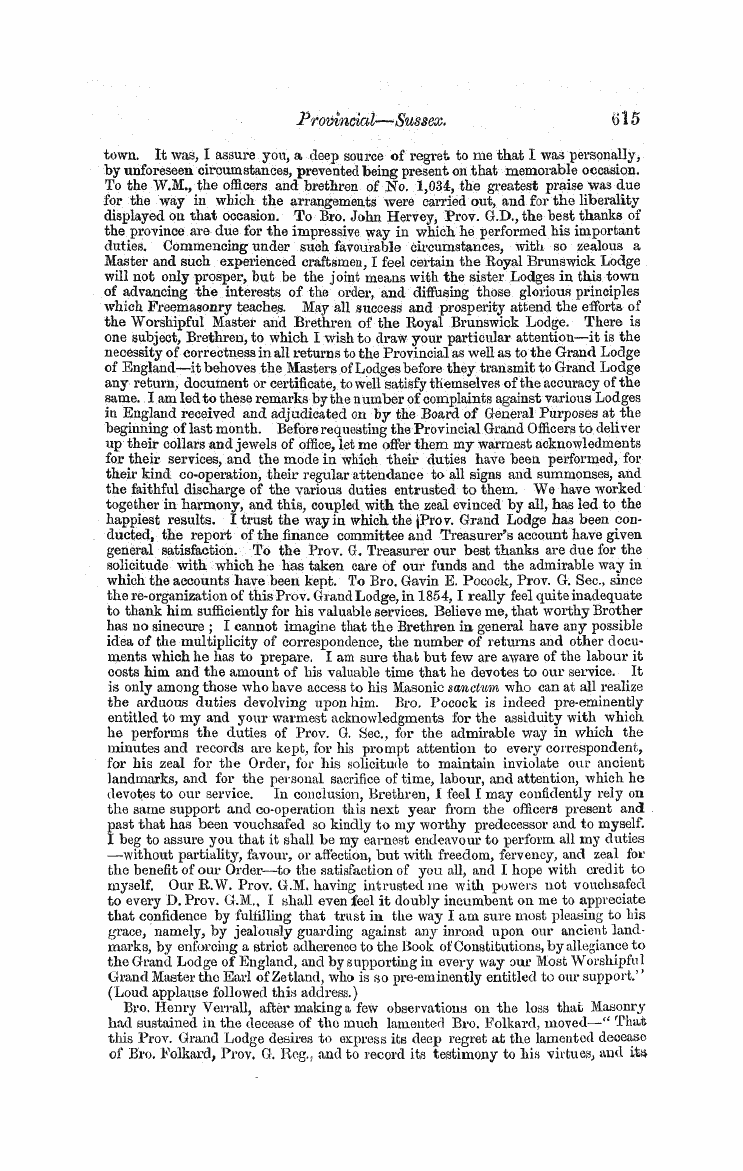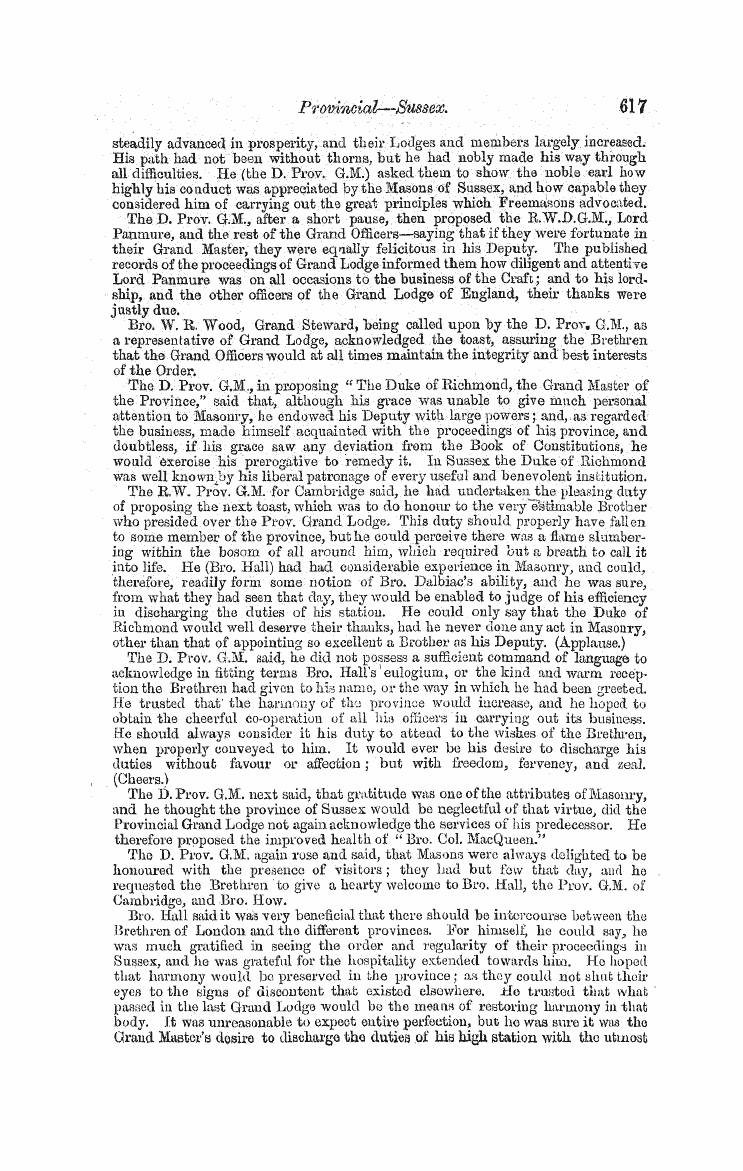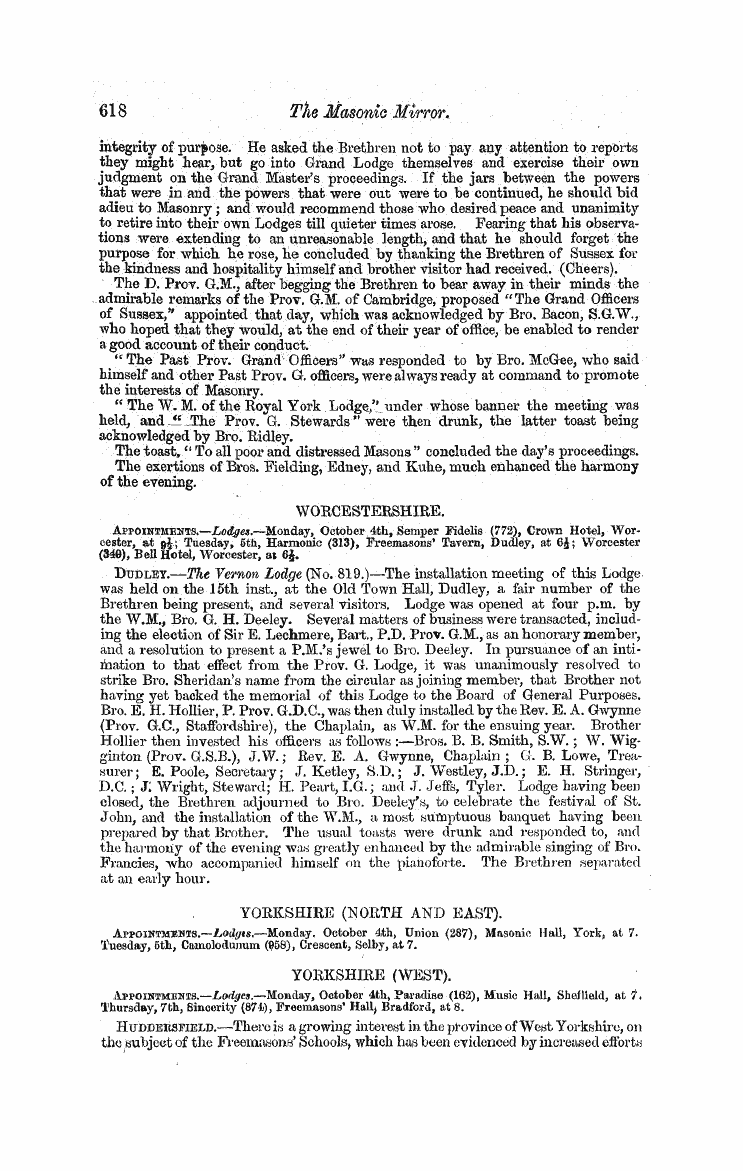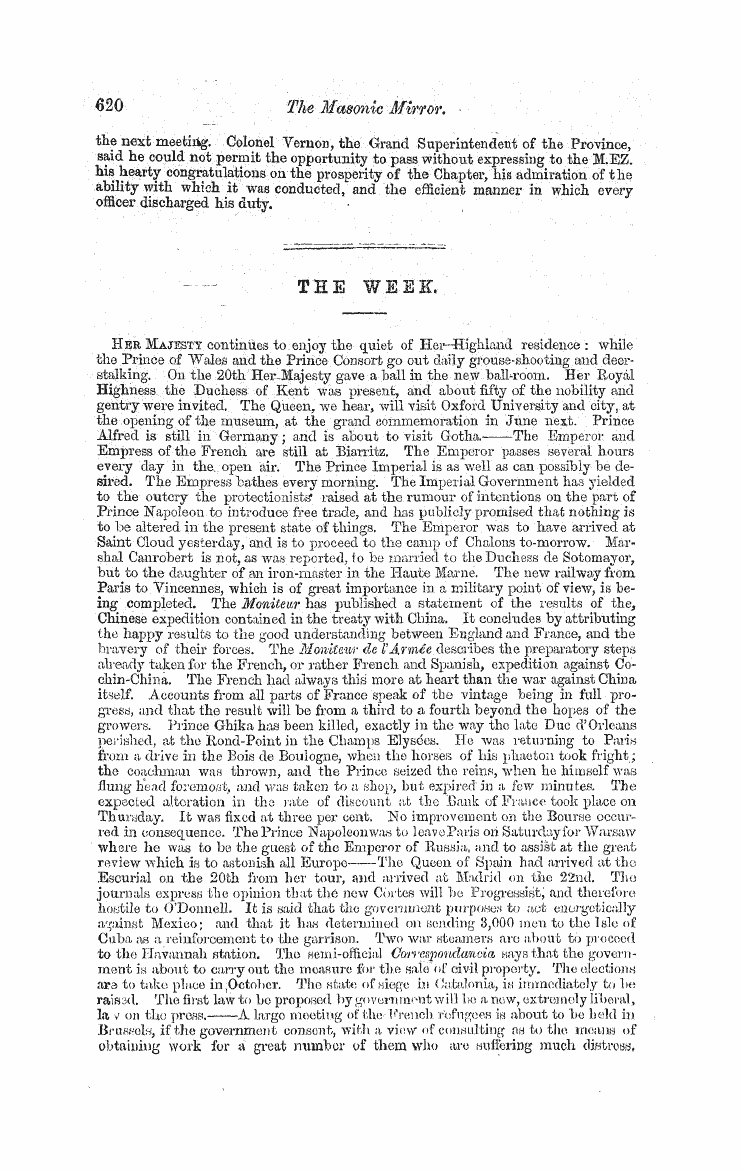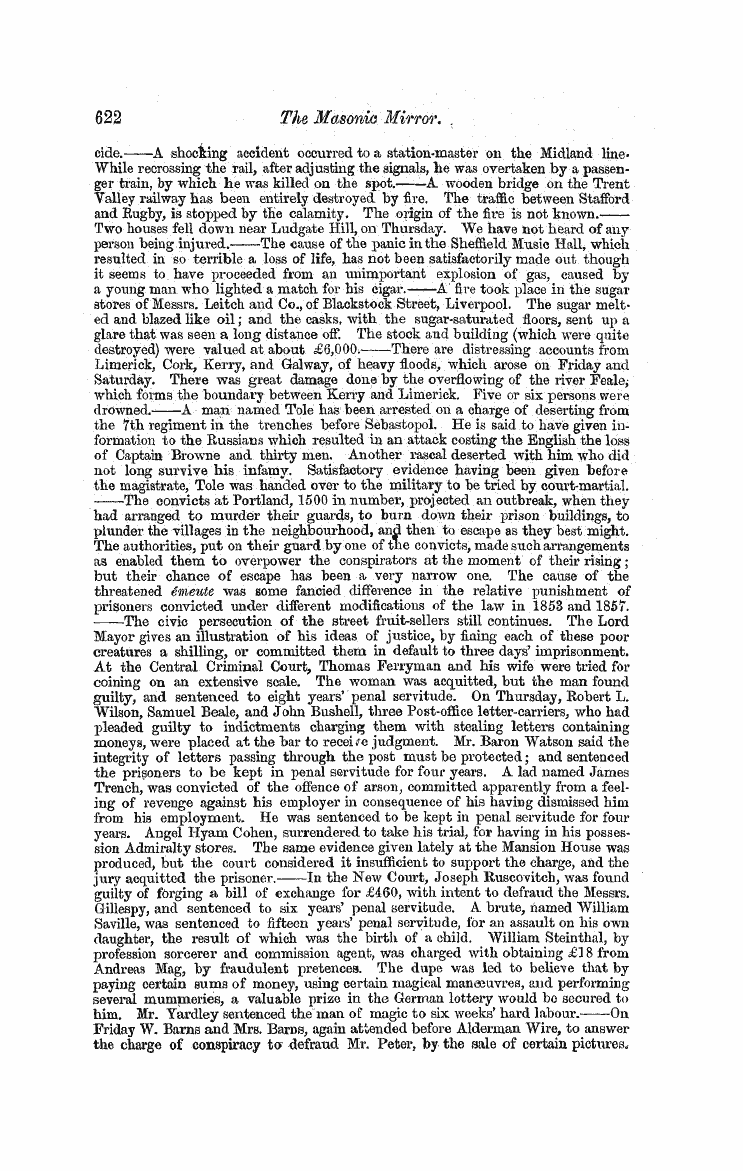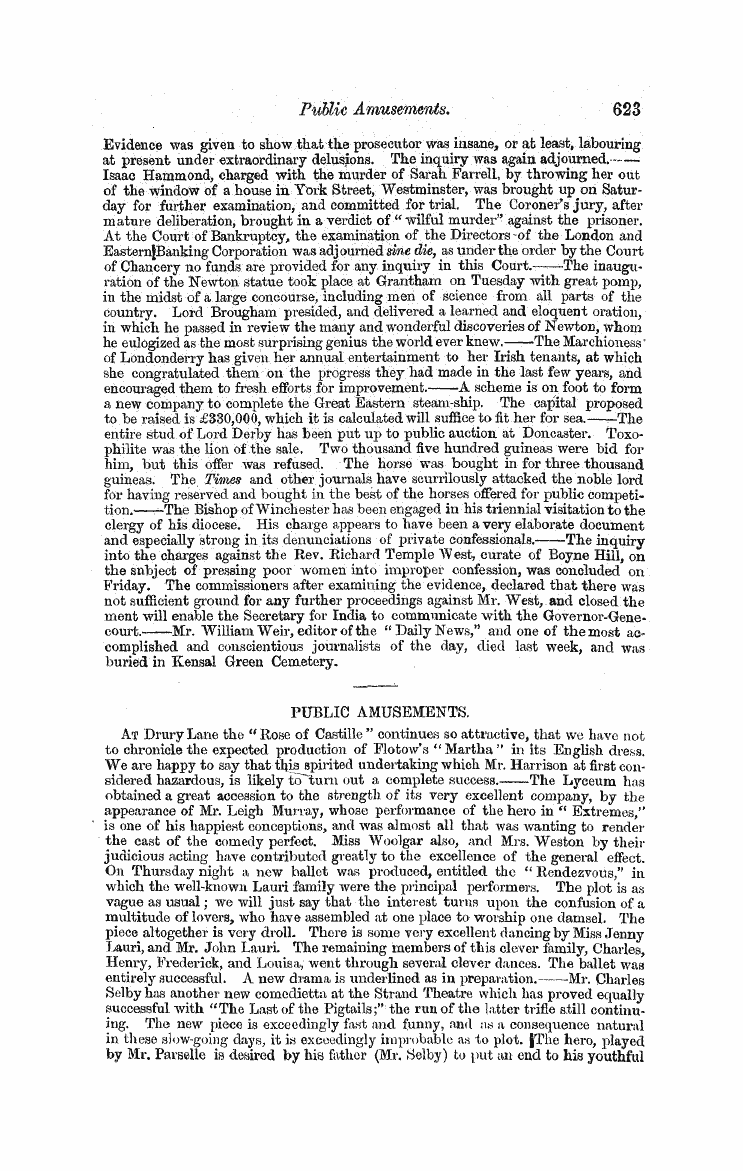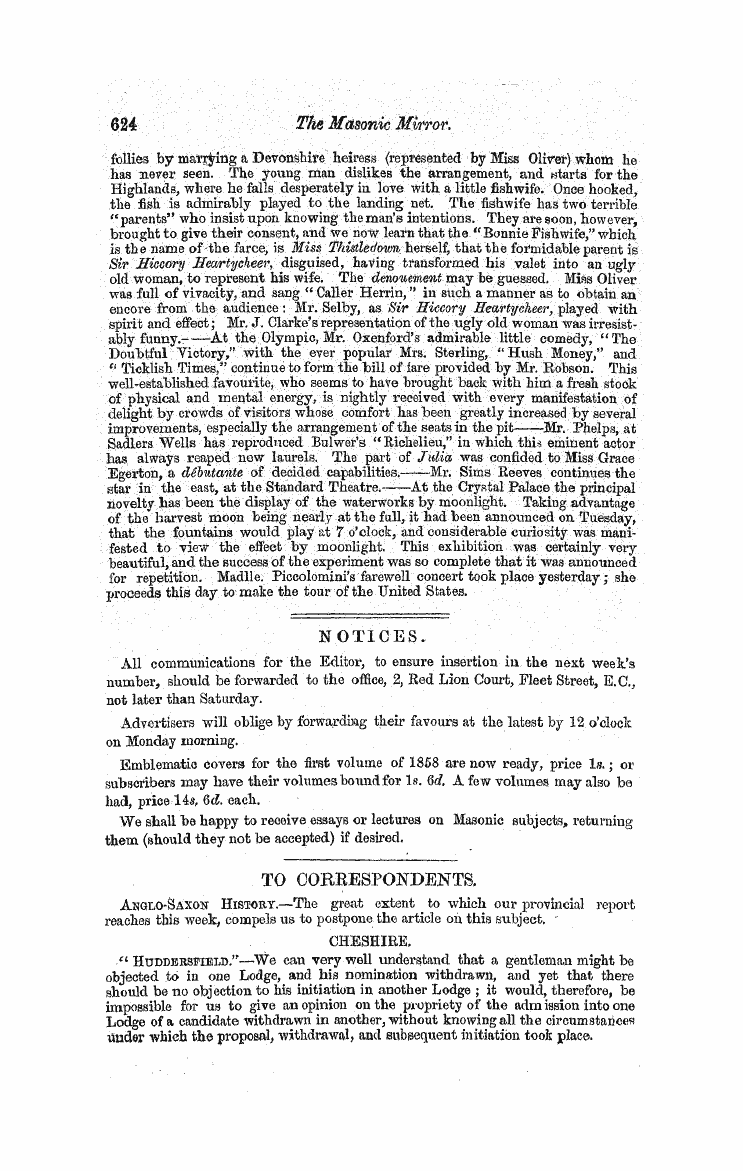Note: This text has been automatically extracted via Optical Character Recognition (OCR) software.
The Anc^
IEneas has passed through the first division , and witnessed the punishments of the second , and he advances to the borders of Elysium , and undergoes the lustration or sprinfeling with fresh water , ( l . 635 , ) which ation into the greater mysteries , and which was said to con ^ iiess on the recipient .
Accordingly , IEneas now centers upon the greater mysteries and comes to the abodes of the blessed . The contrast between this and the scenes . iEneas had witnessed , shew what Aristides meant , when lie called the spectacles of the Eleusinian mysteries , that most shocking ,
and yet most ravishing representation . " The initiated , . ' who , up to this time bore only the name of mystm are now called epopim and this new vision , or seeing with their own eyes , autopsia . In these circumstances the initiated are elsewhere described when they have just entered on this scene : —
44 He now discloses to the initiated a region , illuminated throughout , and shining with a divine brilliancy . The cloud and thick darkness are dispersed ; and the mind emerges , as it were , into day , full of light and cheerfulness , as before of disconsolate obscurity . " 44 Largior hie campos aether et lumine vestit Purpureo ; soleiiique suum , sua sidera norimt . " *—1 . 640 , 641 .
These lines are in the very words of those who profess to relate their initiation into the greater mysteries . " Nocte Media , vidi solem candido coruscantem lumine , "f says Apuleius ( Met . xi . ) , in the passage which we gave to our readers , almost entire , in a former paper .
The poet , having described the climate of this happy region , speaks next of the amusements and occupations of its inhabitants . 44 Pars in gramineis exercent membra palasstris , Contendunt ludo , et fulvfi luctantur arena . " §—( 1 . 642 , 643 ) .
Besides the obvious allusion in these lines to tlie philosophy of Plato , as to the duration of the passions and the desire after death to continue the occupations of life , it seems to have a more secret one , which he had in his mind all through , the Eleusinian mysteries , whose
celebration was accompanied with the Grecian games . On which account perhaps it was , that in the disposition of his work , his fifth book is occupied with the games , as an introduction to the sixth . The first place in these peaceful abodes is assigned to lawgivers and those whose lives tended to the civilization of mankind , at the head of whom Virgil places Orpheus , the most renowned of the lawgivers of Europe ( though better known under the character of poet ) , the more so , as it was he who first brought the mysteries into that * " A purer air here clothes the fields with a clear light , and they know their own sim , and their own stars . " f " I saw the sun shining at midnight with a clear light . " § " Some exercise their limbs on the grass , contend in sport , and wrestle on the yellow sand . "
Note: This text has been automatically extracted via Optical Character Recognition (OCR) software.
The Anc^
IEneas has passed through the first division , and witnessed the punishments of the second , and he advances to the borders of Elysium , and undergoes the lustration or sprinfeling with fresh water , ( l . 635 , ) which ation into the greater mysteries , and which was said to con ^ iiess on the recipient .
Accordingly , IEneas now centers upon the greater mysteries and comes to the abodes of the blessed . The contrast between this and the scenes . iEneas had witnessed , shew what Aristides meant , when lie called the spectacles of the Eleusinian mysteries , that most shocking ,
and yet most ravishing representation . " The initiated , . ' who , up to this time bore only the name of mystm are now called epopim and this new vision , or seeing with their own eyes , autopsia . In these circumstances the initiated are elsewhere described when they have just entered on this scene : —
44 He now discloses to the initiated a region , illuminated throughout , and shining with a divine brilliancy . The cloud and thick darkness are dispersed ; and the mind emerges , as it were , into day , full of light and cheerfulness , as before of disconsolate obscurity . " 44 Largior hie campos aether et lumine vestit Purpureo ; soleiiique suum , sua sidera norimt . " *—1 . 640 , 641 .
These lines are in the very words of those who profess to relate their initiation into the greater mysteries . " Nocte Media , vidi solem candido coruscantem lumine , "f says Apuleius ( Met . xi . ) , in the passage which we gave to our readers , almost entire , in a former paper .
The poet , having described the climate of this happy region , speaks next of the amusements and occupations of its inhabitants . 44 Pars in gramineis exercent membra palasstris , Contendunt ludo , et fulvfi luctantur arena . " §—( 1 . 642 , 643 ) .
Besides the obvious allusion in these lines to tlie philosophy of Plato , as to the duration of the passions and the desire after death to continue the occupations of life , it seems to have a more secret one , which he had in his mind all through , the Eleusinian mysteries , whose
celebration was accompanied with the Grecian games . On which account perhaps it was , that in the disposition of his work , his fifth book is occupied with the games , as an introduction to the sixth . The first place in these peaceful abodes is assigned to lawgivers and those whose lives tended to the civilization of mankind , at the head of whom Virgil places Orpheus , the most renowned of the lawgivers of Europe ( though better known under the character of poet ) , the more so , as it was he who first brought the mysteries into that * " A purer air here clothes the fields with a clear light , and they know their own sim , and their own stars . " f " I saw the sun shining at midnight with a clear light . " § " Some exercise their limbs on the grass , contend in sport , and wrestle on the yellow sand . "































































































































































































